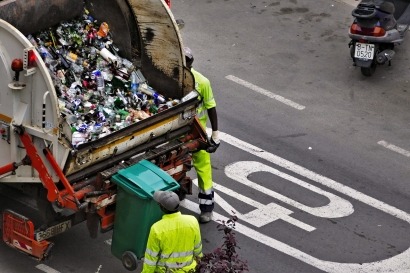
Located within the Le Havre Seine Métropole region – in Le Havre port, specifically the industrial zone managed by HAROPA PORT – the facility is an innovative piece of infrastructure that is an essential step as part of the region’s energy transition and the development of the circular economy.
“The BIOSYNERGY biomass/SRF plant illustrates SUEZ’s expertise in generating local, sustainable energy from waste. At SUEZ, we believe that our waste is first and foremost a resource. It’s with great pride that we’re inaugurating this flagship facility, which is an excellent example of regional co-operation. This project is proof that we can really create value from waste for the people and industry of Normandy,” said Sabrina Soussan , Chairman and CEO of SUEZ.
Mounir Corm, Founding Partner of Vauban Infrastructure Partners, added, “Alongside SUEZ and all local and regional public-sector partners, Vauban Infrastructure Partners is proud to support BIOSYNERGY’s circular economy model, which is helping to drive the region’s energy transition. The project illustrates the crucial contribution that the private sector is making to these important matters, through long-term partnerships with all stakeholders.”
BIOSYNERGY is a pioneering energy recovery facility that addresses two of the Normandy region’s key aims: sending less waste to landfill and increasing production of renewable energy, in accordance with the targets of France’s Energy Transition for Green Growth Act (LTECV) .
The facility produces heat in the form of water vapor from 90,000 tons of non-recyclable waste, wood waste and SRF per year. The site will generate 300,000 MWh of energy per year, which will be fed into the Le Havre urban heating network – heating the equivalent of 24,000 homes – and will also be used by local manufacturers. Through that process, 50,000 tons of CO₂ will be avoided every year compared with burning fossil fuels, helping to decarbonize the region.
The project has benefited from a BCIAT (biomass heating for the manufacturing, agriculture and tertiary sectors) subsidy and financial support from the Normandy region.
By treating residual waste locally and converting it into energy, this infrastructure will enable the use of landfill to be reduced, while helping to meet the national target of carbon neutrality by 2050.
The solid recovered fuel (SRF) used in the BIOSYNERGY boiler is prepared locally at SUEZ’s TriNergy site in Rogerville, only a few kilometers from the plant.
The TriNergy unit is located at a former manufacturing site that has undergone remediation work and is a model for converting industrial land to serve the local circular economy. The TriNergy site takes in non-hazardous industrial and commercial waste, sorts it, removes the metal and shreds it, in order to produce high-quality SRF. Together with non-recyclable wood waste, that SRF is the fuel that powers the BIOSYNERGY plant.

